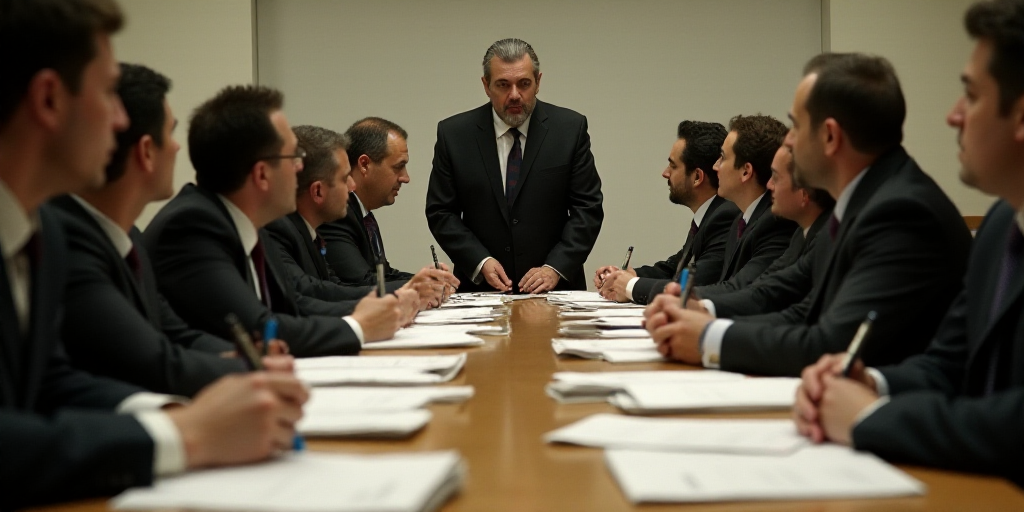Background on Key Figures and Relevance
The Secretaries of Government from all 32 Mexican states convened with Rosa Icela Rodríguez, the Federal Secretary of Government (SEGOB), to advance the National Human Rights Agenda. This meeting highlights the collaborative efforts between state and federal authorities to promote human rights, justice, and democracy in Mexico.
Rosa Icela Rodríguez, as the Federal Secretary of Government, plays a crucial role in coordinating human rights initiatives across the country. Her leadership and commitment to upholding constitutional rights, such as freedom of expression, are essential in fostering a more just and democratic Mexico.
Meeting Focus and Key Discussions
The primary focus of the meeting was to discuss and implement the National Human Rights Agenda, which includes addressing issues like the search for missing persons, freedom of expression, and the National Human Rights Program.
During the gathering, Rodríguez emphasized the importance of collaborative efforts between state and federal authorities to ensure access to truth and justice for families affected by enforced disappearances. She highlighted the recent dialogue with search collectives across Mexico, resulting in over 570 proposals incorporated into the recently approved legislation in June.
Rodríguez also stressed the necessity of defending freedom of expression, citing President Claudia Sheinbaum’s stance that “no one is censored on the second level of transformation.”
Subsecretary Arturo Medina’s Contributions
Arturo Medina, Subsecretary of Human Rights, Population, and Migration, discussed the progress of the Typical Protocol for Attention and Management of Peaceful Protest. He mentioned the adaptation of this protocol to local contexts through the adoption and publication in Mexico City and Zacatecas.
Medina reiterated the SEGOB’s willingness to collaborate in ensuring the right to peaceful protest and free expression.
Participants in the Meeting
The meeting was attended by Secretaries of Government from various states, including Aguascalientes (José Antonio Arámbula), Baja California Sur (José Saúl González), Campeche (Elisa María Hernández), Chiapas (Patricia del Carmen Conde), Chihuahua (Santiago de la Peña), Colima (Alberto Eloy García), Estado de México (Horacio Duarte), Guanajuato (Jorge Daniel Jiménez), Guerrero (Anacleta López), Jalisco (Salvador Zamora), Nayarit (Rocío Esther González), Nuevo León (Javier Luis Navarro), Puebla (José Samuel Aguilar), Querétaro (Carlos Alberto Alcaraz), Quintana Roo (María Cristina Torres), San Luis Potosí (José Guadalupe Torres), Sinaloa (Feliciano Castro), Sonora (Adolfo Salazar), Tabasco (José Ramiro López), Tlaxcala (Luis Antonio Ramírez), Veracruz (Ricardo Ahued), Yucatán (Omar David Pérez), and Zacatecas (Rodrigo Reyes).
Subsecretaries of Human Rights from Baja California (Melba Adriana Olvera), Chihuahua’s Normatividad and Legal Affairs (Sahara Gabriela Cárdenas), Mexico City’s Government (Fadlala Akabani), Durango’s Political Development and Municipal Strengthening (Paulino Córdova), Hidalgo’s Political Development (Bertha Miranda), Michoacán’s Human Rights and Population (Rubén Ignacio Pedraza), Morelos’ Government (Miguel Ángel Peláez), and Oaxaca’s Democratic Development (Carlos Perezcampos) were also present.
Additionally, Jorge Luis Béas from Tamaulipas’s Legal and Governmental Services and Luis Armando Bucio, General Coordinator of the Secretariat General of Governments’ Office, attended. Adrián Isaac García, Secretary of the Zacatecas Secretariat General of Governments, was also present.
Key Questions and Answers
- What is the National Human Rights Agenda? It’s a collaborative initiative between state and federal authorities in Mexico, focusing on promoting human rights, justice, and democracy.
- Who are the key figures involved in this meeting? Rosa Icela Rodríguez, Federal Secretary of Government; Arturo Medina, Subsecretary of Human Rights, Population, and Migration; and various Secretaries and Subsecretaries of Government from different Mexican states.
- What were the main topics discussed during the meeting? The search for missing persons, freedom of expression, and the National Human Rights Program were among the key discussions.
- What is the significance of defending freedom of expression? It’s a constitutional right and obligation that unites people, transcending political differences, with a shared desire for Mexico’s betterment.
- What is the Typical Protocol for Attention and Management of Peaceful Protest? It’s a framework designed to ensure the right to peaceful protest and free expression, adapted to local contexts.






